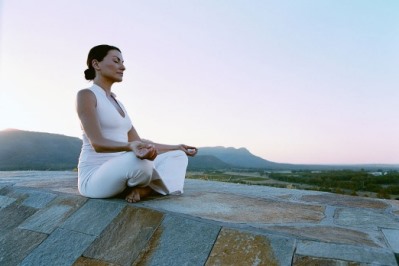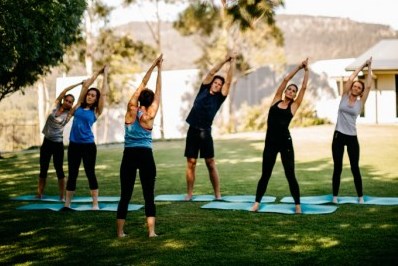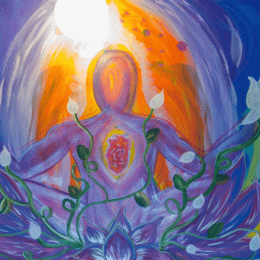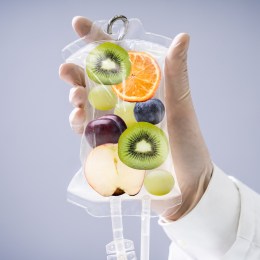Both personal and professional experience has taught Brigid Walsh, the General Manager of health retreat Golden Door, of the true impact that corporate burnout can have on the lives and careers of Australia’s brightest minds. Here she shares her well-learned tips of how you can interpret the warning signs, measure your stress threshold and take active steps to put your health first.*
I once had a counselling session and the counsellor said something that has stayed with me ever since. It was about how much energy I had left at the end of the working day to put into the things that I love doing. That is what true health and wellbeing means to me now – the feeling at the end of the day. It’s when I’m happy, energised, sleeping well and at my peak.
Companies certainly have a responsibility to help us find that balance, and they will benefit from the returns. As I like to say, “The better you look after your staff, the better they look after business.”
 But there has to be an element of self-awareness too. If you’re blind to your health and don’t take action on it, no one else is going to do it for you. Don’t wait until the point where your health is at risk to realise how much it means to you. Understand how your body responds to stresses and do something about it before you get to that point.
But there has to be an element of self-awareness too. If you’re blind to your health and don’t take action on it, no one else is going to do it for you. Don’t wait until the point where your health is at risk to realise how much it means to you. Understand how your body responds to stresses and do something about it before you get to that point.
Understanding the warning signs
Stress is very personal. Different people react to different things, at different times, and can cope with that stress to varying amounts. The key is to be in tune with your body’s own warning signs.
It may be that you’re restless and not sleeping at night. It may be that you’re clenching your jaw and experiencing tension headaches. Perhaps you’re more irritable at home or less focussed at work. We can all cope if one or two of those things happen every now and then. But if they start to build and escalate out of your control, it’s time to own the situation and make some changes.
Know your symptoms, know your threshold and then take control.
How to understand your threshold
Our lives are busy and it can be difficult to find a touchpoint to help us measure when we’re spiralling a little out of control.
I find it helps to build a regular baseline routine that you try to keep even when you’ve got a lot on your plate. We all have deadlines and things that need to be sacrificed, but when you have outlined the things that are important to you, you can ask yourself: “How long can I sacrifice this for? Where will I end up down the track if I continue to do so? And will I go back to having enough energy at the end of the day to put into the things that I love?”
After a month or two, if the answer to those questions is still no, you’re slipping too far. That’s when you say to yourself, “I need to make some hard decisions.”
 The touchpoints that keep me grounded
The touchpoints that keep me grounded
For me, my routine includes regular meditation, physical activity and healthy eating.
I come from a family of 11 – 9 children and two parents – and half of us have suffered from the same anxiety disorder. Meditation has been a huge shift for me. Just finding a quiet space to sit and think has made such a difference, and I feel more creative too. If I fall off the wellbeing wagon, I make sure I get back to my meditation.
Being physically active is also critical for me. Our bodies naturally experience a surge of stress hormones when we’re anxious and, when we were cavemen, our next reaction would be to fight or run. Both of those are forms of physical exercise. In the modern day, these hormones need another outlet.
You don’t have to go to the gym, if that’s not your thing. You could be Latin dancing or doing hill walks, you just need to get your heart rate up to keep your mind steady.
And lastly, food is hugely important. What we eat affects our mood and our energy, so I work to the rule be good 80 per cent of the time and just live 20 per cent of the time – that’s when you enjoy your champagne and some of the foods that you don’t normally have. Make the most of that and don’t feel guilty about it, as long as you’re keeping the 20 per cent to 80 per cent balance.
 The career benefits of stress management
The career benefits of stress management
Having a good understanding of your body and your mind can be transformative. You cope better on a day-to-day basis so you feel better about yourself. You feel better about yourself so you’re happier. And when you’re happier, you’re more open to opportunities. And that’s what your career is, after all: a series of opportunities.
Research shows that we don’t see everything when we’re stressed; our peripheral vision is limited. Once I was asked to watch a video and count how many times the basketball bounced. There were a lot of people playing basketball and it was quite hard trying to count the bounces. In the middle of the video, a gorilla came out, beat its chest and then walked off. At the end of the video, the group was asked, “Who saw the gorilla?” Only half the people in the room put their hand up. When we’re so focussed on something specific, it can be hard to see the bigger picture.
It’s about being able to let opportunities open up in front of you, then letting the magic happen.
If I had a magic wand
I once had a woman say to me, “I feel guilty if I put my health first.” But if you’re not taking care of yourself, how can you be there for the people around you?
 We have a really simple statement here at Golden Door: “Health is either your greatest asset or your greatest liability.” If I had a magic wand that made everyone understand one thing, it would be just that: that health is our greatest asset.
We have a really simple statement here at Golden Door: “Health is either your greatest asset or your greatest liability.” If I had a magic wand that made everyone understand one thing, it would be just that: that health is our greatest asset.
*Re-published courtesy of Thread Publishing




